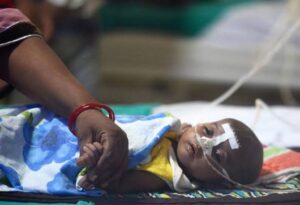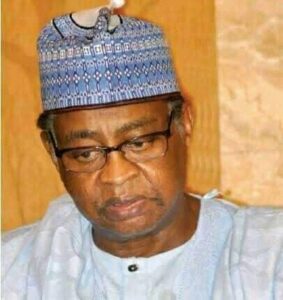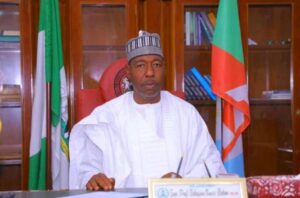
By Moses Bulus
The education of the nomads ought to be seen as an important exercise considering their strategic position in the nation’s economy as the major supplier of protein. The onslaught of the insurgent group, Boko Haram in many parts of northern Nigeria has made suppression of any group a dangerous exercise.
The establishment of Almajiri schools in the northern states of Nigeria and the attendant success thereof make the promotion of communication with the group a national imperative.
The rampant clashes between nomads and their host communities have been traced to poor communication as many of the herdsmen could barely communicate in English. As Nigeria has over two hundred tribes and languages, the itinerant nomads find it difficult to communicate with the other ethnic groups.
Changes in world economy marred occasionally by animal disease (like the mad cow disease in Europe), education within the nomadic population should be enhanced to respond to these changes. Literacy and numeracy will help them to read and access the internet to know not only how to prevent these diseases but also the sale of their products.
Effective English communication will be a great asset. Studies so far conducted on the history of nomads in Africa reveal that with the exception of Somalia, nomads are in the minority wherever they may exist (Adamu, Kirk-Green: 1986).
In Nigeria where they spread out in the Savanna Region, even when they constitute about five million of the 120 million of the population, they are still in the minority.
Their numerical strength notwithstanding, they contribute about 95 percent of the 12 million cattle in Nigeria (Adamu: 1991). Of the nomadic groups, the cattle Fulbe, also known as Mbororo form the largest group.
ARGUMENTS AGAINST NOMADIC EDUCATION
These arguments include:
1. Impracticability of the programme as they have no permanent abode.
2. It could create second rate education.
3. Separate education is unnecessary as special education already exist in the present school curriculum in Nigeria.
4. The need to pursue settlement policy first before nomadic education.
5. The nomads themselves are disinterested in formal or Western Education.
6. They have been gainfully employed while their counterparts with long certificates roam the streets in search of jobs after Western Education.
7. Past legislation has produced no useful result.
8. Government is not likely to enforce the policy as experience has shown.
9. It is an avenue to waste public funds.
PROBLEMS CONFRONTING THE NOMADS
To give good and qualitative education to the nomad, the problem surrounding his existence need be appreciated. It has already been stated that lack of land holding right and permanent settlement are his foremost problems.
Solving these problems will ensure his security as well as grazing grounds for his cattle. Although many of them carry weapons about them, they are victims of unfriendly societies who view them with suspicion and abhor the deployment of their herds to people’s farmland. Rapes of unprotected women working in farmlands have been bandied about against them and where offenders exist nomads are lumped together and vilified.
Moving about under very harsh climate, the intense sun and the bitter cold, made prey of tsetse flies, mosquitoes, snakes and other wild beasts, his physic reflect the hostile realities and agitation around him. Although he is a harbinger of nutritional values, he is ever malnourished. With no one to cook for him, he eats intermittently and depends largely on wild fruits.
Sometimes games come his way but because he is ever on the move, he sells them off at paltry sums; being not in a good position to strike a fair bargain. The children born to him suffer the same fate and his wife is often deprived of nuptial love. With all these absent, modern amenities are clearly beyond him, good roads are constructed without him in mind, or medical facilities for his family, himself and his herds.
Reviewing the whole idea of nomadic education, Hamidu Alkali has this to say:
HARD FACTS ABOUT THE NOMADS
It is an undeniable fact that the nomads in Nigeria are by no means a poor group. They possess rich herds that are convertible to cash. What the nomad in his early twenties possesses may amount to millions of Naira while his counterpart in the university cannot boast as much.
Except for the occasional outbreak of disease, the nomad is economically empowered. He makes no pretense about it and is ready to fight on for his survival.
It is an undeniable fact that the nomads in Nigeria are by no means a poor group.
They possess rich herds that are convertible to cash. What the nomad in his early twenties possesses may amount to millions of Naira while his counterpart in the university cannot boast as much. Except for the occasional outbreak of disease, the nomad is economically empowered. He makes no pretense about it and is ready to fight on for his survival.
In advocating for his continuous funding, the man at the centre of its inauguration, Prof. Jibril Aminu has this to say about the economic status of the nomad, the need to educate him and the idea that the programme is not a waste of public funds: “Nomadic education is not a waste of public funds. Unlike the unproductive nomads of other lands, Nigerian Nomads are economically very productive. They are no beggars. All they need is to be shown the “light.
SOLUTION/RECOMMENDATION
The very first effort ought to be teaching the nomad communication skills to enable him strike a good bargain in the sale of his cattle. In many cases, intermediaries are used which could be both defective and unprofitable. Herein then is a ready and handy tool to enable him reach other nationals who continuously depend on him for their protein.
Legislation has been introduced but not rigidly enforced. Like on the national program on immunization, the national policy on nomadic education should be pursued with the same vigor. Such attractive incentives like school meal program, free education etc. can be introduced.Telecast system has been suggested but efforts need be made for him to follow his education in English so as to reach the wider world. Both radio and television can be used. While he can carry his radio about and many of them do; government has to provide other modern facilities like good roads, water and electricity
The use of power point and mobile cinema can be used to teach the nomads English and other subjects can be taught through this medium to accommodate large groups.The grazing reserve law of 1965 must be revisited and fully implemented to enable nomads have access to land and grazing areas to encourage their settlement. Nomads should be encouraged to build permanent abodes, which will not only give them a sense of belonging but earmark a place for the useful, progressive and result oriented children they have to leave behind when thy die. Gradually through inter-tribal marriages, many of them could be assimilated into the local population.
The constitution of the country guarantees free movement and association in all parts of the country.
In conclusion, the nomad need be introduced to a global and competitive economy through a language that can help him in his quest for a better life, security, good health, better communication, water supply, legal rights and balanced diet. English will best serve these purposes. Language can help in promoting peace, reduction of civil strife and communal clashes. The time to pursue this policy vigorously is now.


